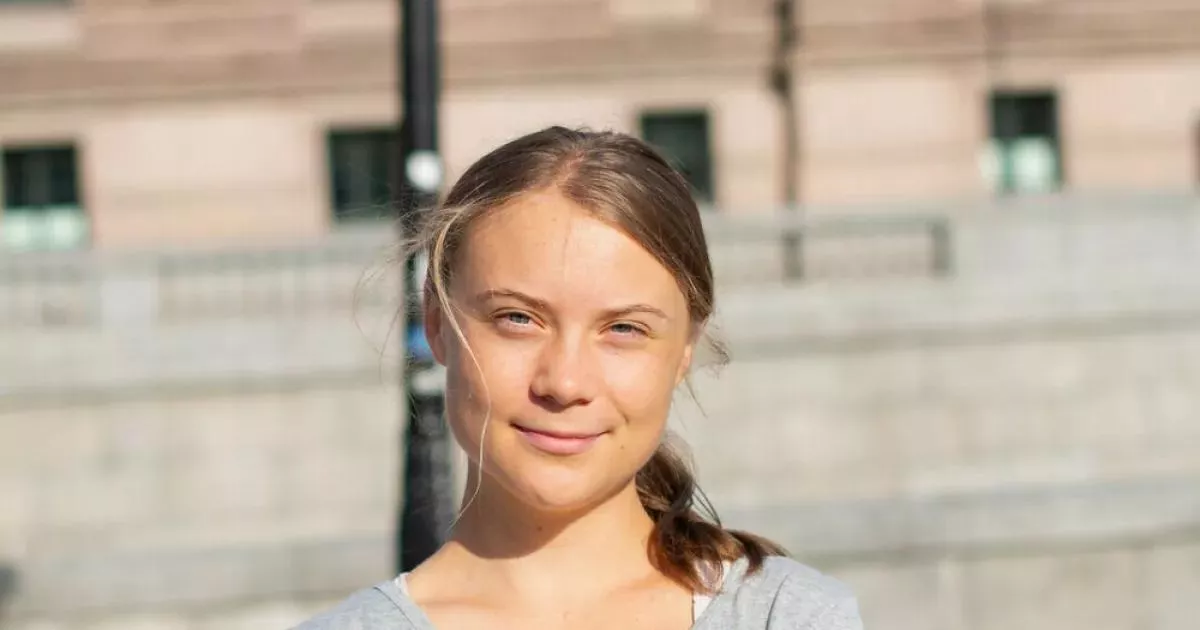From career breakthroughs to professional milestones, explore how Greta Thunberg made an impact.
Greta Thunberg is a Swedish climate activist who gained international recognition for challenging world leaders to take immediate and decisive action against climate change. Starting with school strikes in 2018, she quickly became a prominent voice in the climate conversation, addressing international forums like the United Nations. Thunberg's activism has inspired a global movement, particularly among young people, advocating for stronger climate policies and increased awareness of environmental issues. While lauded by many, she has also faced criticism and controversy for her direct approach and the perceived alarmist nature of her message. Nevertheless, she remains a significant figure in the fight against climate change.
2008: Politicians acknowledge need to focus on climate change
In 2008, Labour politician Ed Miliband, who was responsible for introducing the Climate Change Act 2008, acknowledged the impact of young people on strike, thanked Greta Thunberg for teaching everyone an important lesson.
August 2018: Thunberg Begins School Strikes
In August 2018, 15-year-old Greta Thunberg began skipping school to protest outside the Swedish parliament. She held up a sign reading Skolstrejk för klimatet (School Strike for Climate) to demand stronger climate action, and vowed to strike every Friday until Sweden complied with the Paris Agreement.
August 2018: Start of School Strike
In August 2018, Greta Thunberg started her school strike for climate activism.
2018: Thunberg's Speech at COP24 Went Viral
In 2018, Greta Thunberg's speech during the plenary session of the United Nations Climate Change Conference (COP24) gained widespread attention.
2018: Climate strike protests began
In 2018, after Greta Thunberg's first school strike for the climate, other students engaged in similar protests, uniting and organizing the school strike for climate movement.
2018: IPCC Special Report on Global Warming of 1.5 °C
In 2018, the IPCC's Special Report on Global Warming of 1.5 °C was published, which Greta Thunberg used as a basis for her argument that greenhouse gas emissions needed to decline steeply no later than 2020.
2018: Thunberg's Activism Evolves
Throughout 2018, Greta Thunberg's activism evolved from a solitary protest to include demonstrations throughout Europe, high-profile public speeches, and social media mobilization. She began striking from school only on Fridays and inspired students globally.
January 2019: Thunberg Gave Speech at World Economic Forum
In January 2019, Greta Thunberg gave a speech at the World Economic Forum, declaring: "Our house is on fire."
February 2019: Speech to European Economic and Social Committee
In February 2019, at a conference of the European Economic and Social Committee, Greta Thunberg said that the EU's intention to cut emissions by 40% by 2030 is insufficient to protect the future for children and that the EU must reduce their CO2 emissions by 80%.
February 2019: Juncker outlines climate action in EU budget
In February 2019, Greta Thunberg shared a stage with Jean-Claude Juncker, the President of the European Commission, who announced that 25% of the EU budget from 2021 to 2027 would be allocated to climate change mitigation.
March 2019: Thunberg Continued School Strikes
In March 2019, Greta Thunberg continued her regular protests outside the Swedish parliament every Friday, while maintaining excellent grades in school.
April 2019: Speech to British Parliament
In April 2019, Greta Thunberg spoke to the British Parliament, criticizing the lack of action on global emissions and urging politicians to listen to scientists to address the climate crisis.
May 2019: UN Secretary-General endorses school strikes
In May 2019, United Nations Secretary-General António Guterres endorsed the school strikes initiated by Greta Thunberg, acknowledging the failure of his generation to address climate change adequately and encouraging the youth to take action.
May 2019: Green parties gain seats in European Parliament election
In May 2019, climate issues significantly impacted the European Parliament election, resulting in Green parties achieving their best-ever results and increasing their MEP seat numbers, partly due to the inspiration Greta Thunberg provided to young people.
August 2019: Transatlantic Crossing
In August 2019, Greta Thunberg undertook a carbon-neutral transatlantic crossing on the racing yacht Malizia II, equipped with solar panels and underwater turbines. The voyage from Plymouth, England to New York took 15 days, serving as a demonstration of reducing emissions.
August 2019: Thunberg Sailed Across Atlantic Ocean
In August 2019, Greta Thunberg sailed across the Atlantic Ocean from Plymouth, England, to New York City on the Malizia II yacht to attend the UN Climate Action Summit.
September 2019: Attended UN Climate Action Summit and UNICEF press conference
In September 2019, Greta Thunberg attended the UN Climate Action Summit in New York City and joined a UNICEF press conference alongside 15 other children, including Ayakha Melithafa, Alexandria Villaseñor, Catarina Lorenzo, Ridhima Pandey and Carl Smith.
September 2019: Led climate rally as part of Global Climate Strike in Montreal
In September 2019, Greta Thunberg led a climate rally as part of the Global Climate Strike in Montreal. Over four million people attended the school strikes for climate on 20 and 27 September. Hundreds of thousands took part in the Montreal protest. The mayor of Montreal gave her the Freedom of the City award.
September 2019: Support from US Democratic candidates
In September 2019, Democratic candidates for the 2020 United States presidential election, including Kamala Harris, Beto O'Rourke, and Bernie Sanders, voiced their support for Greta Thunberg following her speech at the action summit in New York.
September 2019: Thunberg attends UN Climate Summit in New York City
In September 2019, Greta Thunberg attended the United Nations Climate Summit in New York City, after a two-week sea voyage across the Atlantic Ocean.
September 2019: Greta Thunberg's UN speech set to death metal
In September 2019, John Meredith set Greta Thunberg's UN Action Summit speech to death metal music.
September 2019: Participated in climate protests in Canada
In late September 2019, Greta Thunberg participated in climate protests in Montreal, Edmonton, and Vancouver, Canada, which included leading a climate rally as part of the Global Climate Strike in Montreal on 27 September. The mayor of Montreal gave her the Freedom of the City award. Prime Minister Justin Trudeau was in attendance, and Thunberg spoke briefly with him.
November 2019: Sailed across the Atlantic Ocean to attend COP25
In November 2019, Greta Thunberg, refusing to fly due to carbon emissions, set sail from Hampton, Virginia, to Lisbon, Portugal, aboard the catamaran La Vagabonde, offered by Riley Whitelum and Elayna Carausu, to attend the COP25 in Madrid after it was moved from Santiago, Chile. Her message was to unite behind the science and act on the science.
December 2019: Arrived in Lisbon and spoke at COP25
In December 2019, Greta Thunberg arrived in the Port of Lisbon and traveled to Madrid to speak at COP25 and participate in the local Fridays for Future climate strikes. During a press conference before the march, she called for more "concrete action", arguing that the global wave of school strikes over the previous year had "achieved nothing" because greenhouse gas emissions were still rising – by 4% since 2015.
December 2019: Madrid Speech on Climate Change Impact
In December 2019, Greta Thunberg spoke in Madrid about the disproportionate effect of climate change on young people and those in the Global South, emphasizing the lack of action on their behalf.
2019: Collaboration with Project Pressure
In 2019, Greta Thunberg collaborated with the climate charity Project Pressure on an art piece projected onto the United Nations Secretariat Building in New York.
2019: Thunberg addressed the UN Climate Action Summit
In 2019, Greta Thunberg sailed from England to New York to address the UN Climate Action Summit. She rebuked world leaders with the phrase "How dare you" in reference to their perceived inaction on the climate crisis.
2019: Thunberg promotes rail travel over flying
In 2019, Greta Thunberg spearheaded the anti-flying movement, promoting rail travel over flying due to environmental concerns, supporting the "flight shame" movement.
2019: Guest editor of BBC Radio's Today Programme
In late 2019, Greta Thunberg was the guest editor of BBC Radio's Today Programme, featuring interviews on climate change with figures like Sir David Attenborough, Mark Carney, Robert Del Naja, and Maarten Wetselaar. The interviews were released as a podcast.
January 2020: Returned to the World Economic Forum in Davos
In January 2020, Greta Thunberg returned to the World Economic Forum in Davos, Switzerland, delivering two speeches and participating in panel discussions. She focused on the theme: "Our house is still on fire."
March 2020: Moved activities online due to COVID-19 pandemic
In March 2020, Greta Thunberg and School Strike for Climate moved their activities online due to the COVID-19 pandemic. Thunberg stated: "In a crisis we change our behavior and adapt to the new circumstances for the greater good of society."
July 2020: Open letter to EU leaders to make ecocide an international crime
In July 2020, Greta Thunberg, along with Luisa Neubauer, Anuna De Wever, and Adélaïde Charlier, co-authored an open letter addressed to all EU leaders and heads of state, urging them to champion the recognition of ecocide as an international crime at the International Criminal Court.
August 2020: Met with Angela Merkel
On 20 August 2020, the second anniversary of Thunberg's first strike, Greta Thunberg and fellow climate activists met with German Chancellor Angela Merkel in Berlin. They subsequently announced plans for another global climate strike on 25 September 2020.
September 2020: Announced plans for another global climate strike
In September 2020, Greta Thunberg and fellow climate activists announced plans for another global climate strike on 25 September, the nature of which would be determined by the COVID-19 pandemic situation.
September 2020: Premiere of "I Am Greta" documentary at Venice Film Festival
On 3 September 2020, the documentary I Am Greta, directed by Nathan Grossman, premiered at the Venice Film Festival.
2020: Call for urgent action on climate change
Greta Thunberg stated that greenhouse gas emissions curve needs to start declining steeply no later than 2020, as detailed in the IPCC's Special Report on Global Warming of 1.5 °C.
2020: Merkel acknowledges Thunberg's influence
In 2020, German Chancellor Angela Merkel acknowledged that young activists such as Greta Thunberg had motivated her government to accelerate actions against climate change.
March 2021: Timmermans commits to European Green Deal after talking to Thunberg
On March 30, 2021, European Commissioner for Climate Action Frans Timmermans tweeted that the Commission remains committed to making the Common Agricultural Policy fulfill the objectives of the European Green Deal after talking to Greta Thunberg.
April 2021: Launched the annual Climate Live concert
In April 2021, Greta Thunberg and other climate activists launched the annual Climate Live concert to highlight climate change.
May 2021: Addressed the COVID-19 crisis
In May 2021, Greta Thunberg addressed the COVID-19 crisis again, urging a change in the food production system and the protection of animals and their habitats. Thunberg said that the way humans are destroying habitats are the perfect conditions for the spread of diseases and noted zoonotic illnesses such as COVID-19, Zika, Ebola, West Nile fever, SARS, MERS, among others.
September 2021: Featured on cover of Vogue Scandinavia and criticized the fashion industry
In September 2021, Greta Thunberg was featured on the cover of Vogue Scandinavia. In the interview, Thunberg criticized the promotional campaigns the fashion industry uses to appear sustainable without "actually doing anything to protect the environment" and called the campaigns "greenwashing".
September 2021: Criticized world leaders at Youth4Climate Summit
On 28 September 2021, Greta Thunberg criticized U.S. president Joe Biden, British prime minister Boris Johnson, Indian prime minister Narendra Modi, and other world leaders over their promises to address the climate crisis in a speech at the Youth4Climate Summit in Milan. Thunberg also criticized and doubted organizers of climate conferences, saying, "They invite cherry-picked young people to meetings like this to pretend they are listening to us. But they are not."
October 2021: Thunberg attends COP26 in Glasgow and protests
On October 30, 2021, Greta Thunberg arrived at Glasgow Central station for the COP26. She participated in protests, including a Fridays for Future Scotland climate strike on November 5, and delivered a speech denouncing COP26 as a failure, using terms like "blah blah blah" and "greenwashing".
November 2021: Filed a petition to the United Nations
In November 2021, Greta Thunberg, along with other climate activists, filed a petition to the United Nations, calling it to declare a level 3 global climate emergency.
December 2021: Reiterated her criticism of U.S. president Joe Biden
In December 2021, Greta Thunberg reiterated her criticism of U.S. president Joe Biden, alluding to the United States expansions on use of fossil fuels during the Biden administration. Thunberg further lamented that activists and teenagers are needed to bring awareness about climate change.
2021: Study links familiarity with Thunberg to climate action
According to a 2021 study, there is a correlation between familiarity with Greta Thunberg and intentions to take collective actions to reduce global warming. The study also suggests that stronger collective efficacy beliefs mediate this relationship, even when accounting for respondents' overall support for climate activism.
2021: Thunberg Spoke About Autism and Climate Activism
In 2021, Greta Thunberg discussed the prevalence of autism within the Fridays for Future movement, highlighting the inclusive environment and the connection between autistic individuals' perspectives and climate activism.
2021: Juncker outlines climate action in EU budget
In February 2019, Jean-Claude Juncker, the President of the European Commission, announced that in the next financial period starting from 2021, 25% of the EU budget until 2027 would be allocated to climate change mitigation.
2022: Criticized the European Parliament for labeling fossil gas and nuclear energy as "green" energy
In 2022, Greta Thunberg criticized the European Parliament for voting to label fossil gas and nuclear energy as "green" energy, calling it "hypocrisy".
2022: Opposed invasion of Ukraine
In 2022, following the invasion of Ukraine by Russian military forces, Greta Thunberg combined her usual Friday climate protests to include opposing the invasion. She stood outside the Russian embassy in Stockholm holding a sign that read "Stand With Ukraine".
2022: Released The Climate Book
In late 2022, Greta Thunberg released The Climate Book, a compilation of essays from over one hundred experts. She donated her copyright and royalties to her foundation.
June 2023: High School Graduation and Final School Strike
In June 2023, Greta Thunberg graduated from high school and marked the day with her last school strike for climate protest before receiving her diploma. She wore traditional Swedish graduation attire and vowed to continue her fight.
June 2023: Met with Ukrainian President Volodymyr Zelenskyy
In June 2023, Greta Thunberg met with Ukrainian President Volodymyr Zelenskyy and other prominent European figures to form a working group to address ecological damage from the 16-month-old Russian invasion.
December 2023: Opinion Piece on Gaza in The Guardian
In December 2023, Greta Thunberg and Fridays for Future Sweden published an opinion piece in The Guardian, titled "We won't stop speaking out about Gaza's suffering – there is no climate justice without human rights," expressing support for Palestinian civilians in Gaza and defending their political stance. They stated that the Fridays for Future groups are autonomous.
2023: Thunberg graduated from High School
In 2023, Greta Thunberg graduated from high school and continued her activism with increasingly assertive tactics, including acts of civil disobedience.
2027: Juncker outlines climate action in EU budget
In February 2019, Jean-Claude Juncker, the President of the European Commission, announced that in the next financial period from 2021 to 2027, 25% of the EU budget would be allocated to climate change mitigation.
2030: Call for urgent action on climate change
Greta Thunberg said that the EU's current intention to cut emissions by 40% by 2030 is insufficient to protect the future for children and that the EU must reduce their CO2 emissions by 80%.
Mentioned in this timeline

Donald John Trump is an American politician media personality and...

Bernie Sanders is a prominent American politician currently serving as...
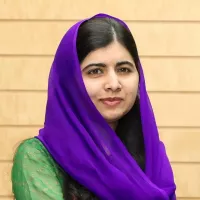
Malala Yousafzai is a Pakistani activist advocating for female education...
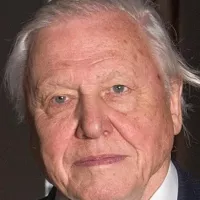
Sir David Attenborough is a highly influential British broadcaster biologist...
Ukraine is a country in Eastern Europe the second-largest on...
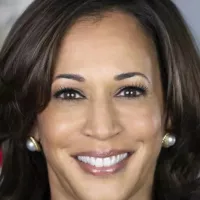
Kamala Harris is an American politician and attorney She served...
Trending

21 minutes ago Learner Tien at Delray Beach Open: Fritz ousted, Paul advances, Korda previewed.

22 minutes ago Genesis Rodriguez Cast in 'The Night Agent' Season 3 as Isabel De Leon.
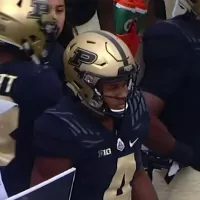
22 minutes ago Rondale Moore, NFL Wide Receiver, Tragically Passes Away at the Young Age of 25

22 minutes ago Tyler Herro Returns to Heat with a Flak Jacket, Hawks Defeated

1 hour ago Sloane Stephens and Jozy Altidore Announce Divorce After Four Years of Marriage
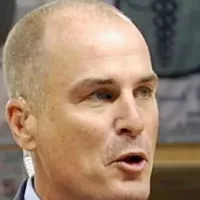
1 hour ago Jay Bilas Praises UNC; Dixon Struggles; Davis's Job May Be Safe
Popular

Jesse Jackson is an American civil rights activist politician and...

Barack Obama the th U S President - was the...

Bernie Sanders is a prominent American politician currently serving as...

Ken Paxton is an American politician and lawyer serving as...

Michael Joseph Jackson the King of Pop was a highly...
Randall Adam Fine is an American politician a Republican who...
